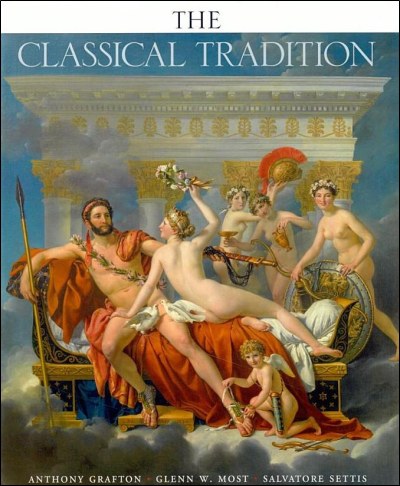The Classical Tradition
edited by Anthony Grafton, Glenn W. Most, and Salvatore Settis
Belknap Press/ Harvard University Press, 1,067 pp., $49.95
Reviewed in the current NY Review of Books, though the book was originally published at the end of 2010:
This is how the review concludes, which reflects so much about our currently free-falling world, as perceived by those whose nativity is pre-digital:
The Renaissance was poised between a ritual of mourning and an act of resurrection. On the one hand, Petrarch wept over the corpse of the ancient world, its shattered ruins testifying to an irrevocable loss. On the other hand, even as he wept, he launched a passionate attempt to recover the moral and aesthetic standards of the classical past and to celebrate those values that remained eternally valid, untouched by time and indifferent to history. The understanding of ancient culture as the product of a particular historical period is in tension with the dream of rebirth. Even the great modern champions of historical awareness remain vexed by the normative nature of the classical tradition as a source of truth and beauty. Marx understood ancient Greece as the model childhood of humanity. For Nietzsche, a failure to seize hold of the rejuvenating power of antiquity is an abuse of history.
The Classical Tradition is an elegy both for the historical obsession with Greek and Roman antiquity and for the dream of its eternal validity. It is a “last book.” Its editors know that huge collections of this kind will henceforth find their place, if anywhere, on the Web. And they know still more, that today’s humanities students prefer subjects no older than themselves.
As we see, the reviewers' essay on this work is an elegiac musing upon our own times, as it reflects upon the looking-back of other ages at the classical world. Whether or not the reviewers are essentially correct in this vision is irrelevant because their style is functionally integrated with the ostensible subject at hand -- the book, and what is contained in the book itself, which contents, like the essay, are a co-creation. A lovely piece of writing.


No comments:
Post a Comment